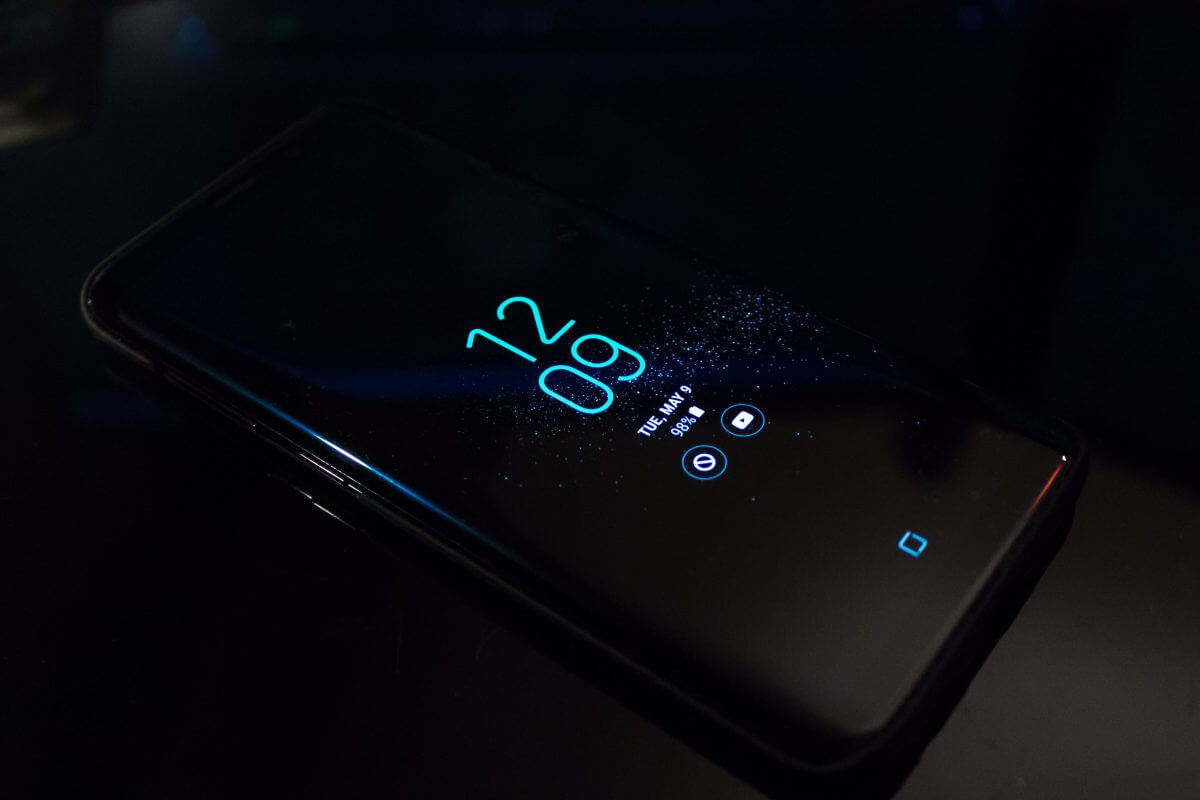In today’s digital age, where privacy concerns are at an all-time high and internet freedom is increasingly under threat, Virtual Private Networks (VPNs) have emerged as essential tools for Android users. A VPN functions by establishing a secure and encrypted connection between your Android device and the internet, thereby shielding your online activities from prying eyes. This not only enhances your privacy but also significantly improves online security by protecting your data from hackers, especially when connected to public Wi-Fi networks. Moreover, VPNs facilitate content access by bypassing geo-restrictions, allowing users to enjoy a global internet experience without barriers.
The importance of VPNs is underscored by the growing instances of data breaches, governmental surveillance, and content censorship. As our reliance on mobile devices for internet access continues to surge, the need to safeguard our online privacy and maintain unrestricted access to information becomes paramount. This is especially true for Android users, who constitute the majority of mobile device users worldwide and are often the target of security exploits.
Given the diverse needs of Android users, the market offers a wide range of VPN options, categorized into free and paid services. While free VPNs provide a no-cost solution to enhance privacy and bypass content restrictions, they often come with limitations such as data caps, reduced speeds, and a limited selection of servers. On the other hand, paid VPNs offer comprehensive features including unlimited bandwidth, superior encryption, and an extensive network of servers across the globe, catering to those who prioritize robust online security and unrestricted internet access. This article explores the best VPNs for Android in 2024, offering insights into both free and paid options to help you make an informed choice.
Virtual Private Networks (VPNs) on Android devices function through a blend of encryption, server networks, and IP masking to ensure users” online activities remain confidential and secure. At its core, a VPN encrypts the data transmitted from your Android device before it reaches the internet. This encryption process converts your data into a code that is impenetrable without the correct decryption key, thereby safeguarding your information from hackers and snoopers.
Once encrypted, your data is sent to a remote VPN server, which acts as an intermediary between your device and the websites you wish to access. This server network is crucial for both security and the VPN’s ability to bypass geo-restrictions, as it masks your real IP address with one from the server’s location. As a result, your online identity is anonymized, making it seem as though you are accessing the internet from a different location. This IP masking technique is particularly handy for accessing region-specific content or websites that may be blocked in your actual location.

However, the process of encryption and rerouting data through remote servers can sometimes impact your browsing speed and data usage. The extent of this impact varies among different VPN providers, with premium options often offering optimized speeds and efficient data use through advanced technology and a wider network of servers. Understanding these technical workings is key to choosing the right VPN service that balances security features with performance needs.
In the quest for digital privacy and security on Android devices, the allure of free VPNs is undeniable. While the market in 2024 is flush with options, choosing the right one requires a careful examination of their features, limitations, and the inevitable trade-offs associated with free services. Here, we delve into three commendable free VPN choices for Android users, examining what sets them apart and the constraints they impose.
VPN A: TurboShield VPN
Standout Features: TurboShield VPN is reputed for its user-friendly interface and an impressive selection of servers for a free service, boasting over 20 server locations worldwide. It also offers a unique split-tunneling feature, allowing users to choose which apps route through the VPN and which don”t, optimizing speed and data usage.
Limitations: Despite its benefits, TurboShield implements a daily data cap of 500MB, which might be restrictive for heavy data users or those streaming media content. Moreover, the free version subjects users to occasional ads, which can disrupt the browsing experience.
VPN B: GuardianNet VPN
Standout Features: GuardianNet shines with its robust privacy policy and a strict no-logs policy, ensuring that your browsing history remains private. Additionally, it incorporates an automatic kill switch that safeguards your data from exposure in the event of a VPN disconnection—a rare feature among free VPNs.
Limitations: On the downside, GuardianNet restricts the free service to just three server locations, possibly affecting access to content and overall connection speeds. Users may also experience speed throttling during peak hours to manage bandwidth among its free users.
VPN C: StreamFlix VPN
Standout Features: Designed with media streaming in mind, StreamFlix offers optimized servers for accessing popular video streaming services. This focus on streaming is complemented by unlimited bandwidth, a highly attractive feature not commonly found in free VPN offerings.
Limitations: The major limitation of StreamFlix is the enforced monthly data cap of 10GB, which, while generous, can be quickly exhausted with high-definition streaming. Another trade-off is the lack of a dedicated app, requiring manual setup that might deter less tech-savvy users.
Evaluating the Trade-offs
Opting for a free VPN service on your Android device comes with its set of considerations. Common restrictions include speed throttling, where your internet speed is deliberately slowed down during congested periods to accommodate all users. Data limits are another significant consideration, as streaming, downloading, and even regular browsing can quickly consume data allowances, rendering the VPN less effective for comprehensive daily use. Lastly, the presence of ads in free versions can compromise the seamlessness of your online experience, interrupting activities with potentially intrusive marketing.
Understanding these trade-offs is crucial in setting realistic expectations for free VPN services. While they offer an accessible entry point to online privacy and security, the limitations highlight the importance of weighing your specific needs against the constraints of free offerings.
In 2024, as digital threats become more sophisticated and online privacy continues to be a paramount concern, investing in a paid VPN service for Android devices is not just a luxury but a necessity for many users. Paid VPNs elevate the standard of online anonymity, security, and convenience, providing features that free options can’t match. Let”s explore three top-tier paid VPN services that stand out in the crowded marketplace.
VPN D: SecureGate VPN
Standout Features: SecureGate VPN distinguishes itself with an unwavering commitment to user privacy, supported by a stringent no-logs policy verified through independent audits. It offers an expansive network of over 5,000 servers in more than 60 countries, ensuring users can connect from almost anywhere globally without compromising speed or reliability. Additionally, SecureGate employs proprietary Hydra protocol, which optimizes connection speeds while maintaining robust encryption, making it ideal for streaming, gaming, and secure browsing on Android devices.
Why It”s Worth It: The broad server diversity and advanced privacy measures position SecureGate as a premium choice for users who value both performance and confidentiality.
VPN E: LightningVPN
Standout Features: LightningVPN lives up to its name by offering exceptional speeds thanks to its state-of-the-art server technology and optimized network. It boasts AES-256 encryption—the gold standard in security—coupled with a Double VPN feature that routes your traffic through two servers for an added layer of protection. LightningVPN is also recognized for seamless streaming capabilities, allowing users to enjoy content without buffering or bandwidth throttling on their Android devices.
Why It”s Worth It: For users prioritizing speed without compromising security, LightningVPN offers a compelling package that enhances the VPN experience significantly.
VPN F: GuardianPro VPN
Standout Features: GuardianPro sets the bar high with its 24/7 customer support, offering real-time assistance through chat, a rarity in the VPN world. This is complemented by an array of additional security features, such as an automatic kill switch, DNS leak protection, and dedicated IP options. GuardianPro’s meticulous attention to customer service and advanced security measures make it a standout choice for Android users seeking a comprehensive VPN solution.
Why It”s Worth It: Exceptional customer support and advanced security options make GuardianPro a worthwhile investment for users seeking peace of mind alongside premium service.
Understanding the Value of Paid VPNs
When contrasted with free VPN options, paid services like SecureGate, LightningVPN, and GuardianPro offer undeniable advantages. Unlimited data allowances mean that streaming, downloading, and extensive browsing can proceed without the looming specter of reaching a data cap. Improved speeds are a hallmark of paid VPNs, eliminating the frustration of speed throttling that can hamper online activities. Furthermore, the enhanced security features of paid VPNs provide a robust defense against evolving digital threats, making the investment not only about convenience but about comprehensive online protection.
In sum, the value of paid VPNs for Android in 2024 lies in their ability to deliver a superior, unrestricted online experience bolstered by top-tier security, making them an essential tool for users who demand the best in online privacy and access.
Important VPN Features for Android Users
When it comes to securing your online activities on Android devices, choosing the right Virtual Private Network (VPN) is critical. Not all VPN services are created equal, and understanding the key features to look for can greatly enhance your online privacy, security, and user experience. Here are some essential features Android users should consider:
Encryption Quality
High-quality encryption is the backbone of any reliable VPN service. It ensures that your internet traffic is unreadable to anyone who intercepts it. Look for VPNs that offer AES-256 encryption, as this standard is currently considered unbreakable and is used by governments and security experts worldwide.
No-Log Policy
A strict no-log policy means the VPN provider does not store records of your online activities. This is crucial for maintaining your privacy, as it ensures that your browsing history, downloaded files, or any online activity cannot be traced back to you, even if the VPN provider is compelled to hand over data.
Speed and Stability
While VPNs inherently slow down your internet connection due to the encryption process, a good VPN minimizes this impact. Prioritize services known for their speed and stability to ensure smooth streaming, gaming, and browsing without frustrating lag or frequent disconnects.
Server Count and Locations
A vast network of servers across different locations offers more options for geo-spoofing—tricking websites into thinking you”re accessing them from another country. This can be particularly useful for bypassing geo-blocked content or censored websites. More servers also mean less crowding, which can lead to better speeds.
User Interface and Ease of Use
A user-friendly interface is especially important on mobile devices. Look for VPN apps that are straightforward to navigate, allowing you to connect to your desired server quickly or adjust settings without hassle.
Special Considerations for Android Users
Compatibility with Android Versions
Ensure the VPN app is compatible with your Android version. An app optimized for the latest Android version ensures better performance, stability, and security features.
Battery Life Impact
VPNs can be battery-intensive due to their constant background processing. Opt for VPNs that are optimized to have a minimal impact on your device”s battery life, ensuring that your online protection doesn”t come at the cost of constantly needing to recharge.
App Permissions
Carefully review the permissions requested by the VPN app. Only necessary permissions, like network access, should be required. Be wary of apps asking for excessive permissions, as this could be a red flag for privacy concerns.
By paying attention to these key features and considerations, Android users can select a VPN service that offers robust protection, high performance, and a great user experience, all while minimizing the impact on their device”s performance and battery life. Remember, the right VPN can be a powerful tool in safeguarding your online privacy and unlocking the full potential of the internet securely.
Looking to boost your online security and privacy on Android? Scroll down and share your thoughts or experiences with VPNs in the comments below! Let’s help each other stay safe and informed.
Common Questions about VPNs on Android
Can a VPN increase my data usage?
Yes, using a VPN can increase your data usage by about 5% to 15%. This increase is due to the encryption process, which adds a small amount of data to each packet transmitted. While generally not a significant increase for most users, those with limited data plans should be mindful of this.
Are free VPNs safe to use on Android?
Caution is advisable with free VPNs. While there are reputable free VPN services, many may compromise your privacy by logging and selling your data, or have weaker security features. Always research a VPN”s reputation and policies before use.
How do I set up a VPN on my Android device?
Setting up a VPN on Android is straightforward:
- Download and Install: Select a trusted VPN provider and download their app from the Google Play Store.
- Sign In: Open the app, sign up (if required), and log in.
- Connect: Choose a server location and tap the connect button. You”re now browsing securely!
For enhanced online privacy or accessing geo-restricted content on your Android device, a VPN is a valuable tool. Remember to choose a reputable service and be aware of the added data usage.
Summarizing the Best VPN Choices
In the world of VPNs, the balance between cost and features is crucial. A great VPN offers robust security, a no-log policy, speed, and a user-friendly interface without breaking the bank. While free VPNs can be appealing, they often come with limitations in security, speed, and data usage.
Personal Recommendation
For those seeking a cost-effective yet secure option, I recommend TeginVPN. As a newcomer on the market, TeginVPN is making waves by offering top-notch security features, impressive speed, and an intuitive interface at an unbeatable price. Whether you opt for their free version to get started or invest in their comprehensive paid plan, TeginVPN stands out as the best solution for Android users right now, balancing affordability with excellent service and features.

